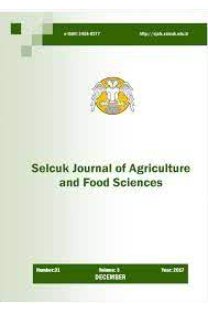Defining and Predicting Consumers’ Bread Choices based on Socio-Demographic Characteristics and Healthy Living Orientations
Defining and Predicting Consumers’ Bread Choices based on Socio-Demographic Characteristics and Healthy Living Orientations
The bread still constitutes an essential part of meeting the daily nutritional requirement. This study, it is tried to define and predict the behavioral attitudes of consumers toward bread consumption. The primary purpose of this study is to examine the socio-demographic characteristics of individuals and their bread consumption preferences and perceptions with a focus on quality and healthy
life. The data are obtained digitally with 9583 consumers from survey questions created on google form throughout Turkey throughout the year 2020. First, descriptive statistics of the answers to the comprehensive survey questions are revealed. Then, correlation analysis was conducted to show the relationships between the variables, in line with each sub-objective set up under the primary
purpose. Finally, by using some data mining and machine learning algorithms, it is tried to reveal future expectations based on some main determinant parameters such as health and quality expectation for bread consumption of consumers. All statistical and inferential evaluations were made using the Konstanz Information Miner (KNIME) analytics platform. The findings discover that increasing income and education level in bread consumption improves the level of awareness about health and quality of life in people, and these attitudes and perceptions bring about a proportional decrease in bread consumption of individuals. On the other hand, as a vicious circle, it reveals that the sedentary life brought by work-life in modern society causes an increase in body weight and
an unhealthy living ecosystem. The findings can offer meaningful advice to all actors and political decision-makers involved in the bread market and supply chain and consumers.
